6 More Exceptional Women Heading CCS Grantee Organizations
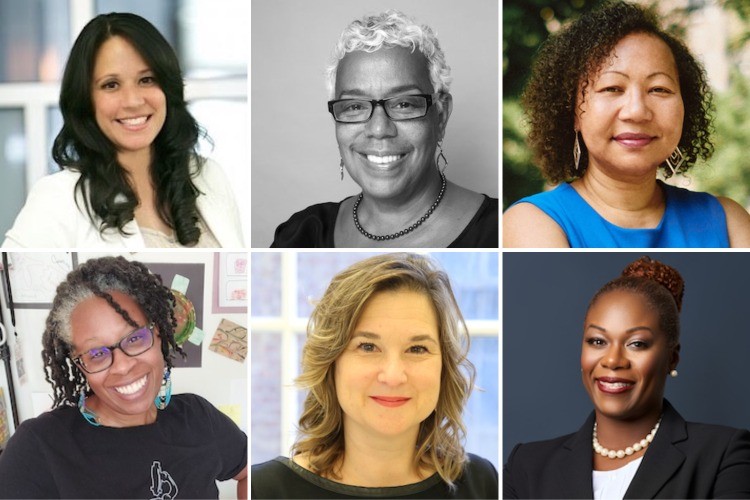
Every year, Columbia Community Service provides grants to dozens of organizations that serve the Harlem and Morningside Heights communities. Through educational enrichment, support for the arts, providing vital social services, and helping combat hunger, these organizations help the neighborhoods they serve thrive. Many of these important organizations are led by dedicated, passionate women who have helped them become staples of the Upper Manhattan community.
Learn more about what drives six of these women below.
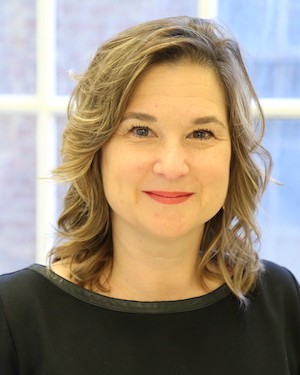
Sharon Cohen
Sharon Cohen founded Figure Skating in Harlem in 1997, seven years after a chance encounter with a group of girls from East Harlem who were eager to learn how to figure skate. Having grown up in the world of competitive skating, Cohen jumped at the opportunity to launch the only organization in the country for girls of color that combines the power of education with access to the grace and discipline of figure skating.
What’s your inspiration for serving in your current role?
I am inspired every day, first and foremost, by our amazing students, their creativity and joy, and also our dedicated team. They show up ready to serve and pivot and bring encouragement. I am also inspired by the possibilities that still lie ahead for our growth in NYC and other places. I most look forward to one of our students or alumni sitting in my seat one day, bringing their unique perspective.
How does your organization positively impact Harlem, Morningside Heights, and New York City?
Our impact is deep and wide. As we combine education and leadership with access to the sport and art of figure skating, we create hundreds of true champions in life every year. Our students are developing and learning about their strengths and assets in a way that impacts not only their lives but the lives of their families and community. Our thousands of alumni are also working in every conceivable field from law and social work to design, engineering, real estate, teaching, and more.
What’s your superpower?
Having a genuine, authentic, and enthusiastic interest in our purpose. Also, working with everyone to create positive, meaningful experiences that result in new opportunities for our students and the community to shine.
What’s a tip you have for other women in nonprofit leadership roles?
Being focused, organized and an empathetic cheerleader really helps. So does being open and self-aware.
What’s your favorite place in New York City?
There are many! Today, I’d say “on the ice in Harlem”.
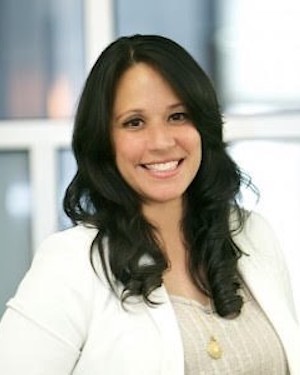
Berta Colón
Berta Colón is the Executive Director of the Riverside Language Program, an Immigrant Integration Center that serves newly arrived immigrants, refugees, and asylum-seekers in New York City by providing full-time English language instruction, workforce and digital literacy training, wrap-around case management and counseling, and community engagement workshops. Colón has over 25 years of experience working in the nonprofit and philanthropic sectors and is on the board of the Literacy Assistance Center and the New York Association of Continuing/Community Education.
What’s your inspiration for serving in your current role?
My parents. Like many children of parents who did not speak English when they came to the U.S., I often served as their translator and witnessed firsthand how they were treated with disrespect and disdain simply because they did not know the language. My parents did not have the benefit of an organization like Riverside. They pieced together bits of English and worked in factories under terrible conditions to build a new life in New York City. They had hopes and dreams that slowly disappeared with time. Riverside provides immigrants and refugees with the programs, training, and access to services they need to stay focused and accomplish their personal and professional goals.
How does your organization positively impact Harlem, Morningside Heights, and New York City?
Riverside not only serves the immigrant and refugee population in Harlem, Morningside Heights, and the greater New York City area, but we also engage other community members in those areas through volunteer opportunities and cultural events designed to build community and expand networks.
What’s your superpower?
My superpower is projecting and magnifying the voices of a community that is often ignored or invisible.
What’s a tip you have for other women in nonprofit leadership roles?
Find a passion that is not work-related. As a nonprofit leader, it is extremely difficult to find a work/life balance. However, one way to disconnect and explore other aspects of yourself is to find a passion completely different from work. I make jewelry which taps my creative side and connects me to people and places very different from those in my 'work-life.'
What’s your favorite place in New York City?
The Untermyer Fountain, with the sculpture of the three dancing maidens located in the Conservatory Garden of Central Park.
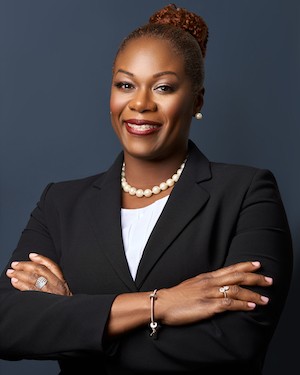
Tamika Edwards
Tamika Edwards is a native of Brooklyn, NY. While in high school, she took a law class where she learned the value of civic engagement and participated in debate competitions on the city and state levels. This sparked her interest in law and education, particularly as they relate to inner-city youth. Edwards went on to receive her B.A. in Legal Studies from the State University of New York at Buffalo and her J.D. from New England School of Law. She accepted a position at Legal Outreach in 1999 upon graduating from law school. Sine then, Edwards has worked at Legal Outreach in several capacities. This September, she will assume the role of Executive Director.
What’s your inspiration for serving in your current role and the new role in September?
There's no better way to contribute to shaping the lives of youth from overlooked and underrepresented communities than ensuring they are prepared to lead, serve and make a difference in society. For 23 years, I have had the pleasure of working directly with young people. Being the Executive Director of Legal Outreach will position me to expand our work, reaching more students and families and extending the diversity pipelines to professional careers.
How does your organization positively impact Harlem, Morningside Heights, and New York City?
Each year, we place up to 144 rising ninth graders from middle schools in underserved communities in New York City into our Summer Law Institutes (SLI), which take place at six different law schools across the city. For five weeks, students learn about the criminal justice system and criminal trials from law students, legal professionals, and a sitting federal judge. They also visit legal and corporate institutions to gain insights into the professional world and engage in simulated legal/business-related activities. To help them with their transition to high school, we provide academic enrichment by covering topics such as study skills, public speaking and essay writing. Last summer, we were fortunate to host 18 students from the Harlem and Morningside Heights communities at the SLI at Columbia Law School.
What’s your superpower?
I'm a problem-solver extraordinaire. I'll find a way out of no way!
What’s a tip you have for other women in nonprofit leadership roles?
Bring all of you to the table—your critical thinking, compassion, commitment, ingenuity, grace, and intellectual curiosity. It's all necessary to tackle the work, engage the people, and meet the needs we encounter on a daily basis.
What’s your favorite place in New York City?
My favorite place is Prospect Park. It's where I spent a good deal of my childhood after school and on weekends. Now, I take my own children there, and they have to endure my telling them tons of "back in the day" stories!
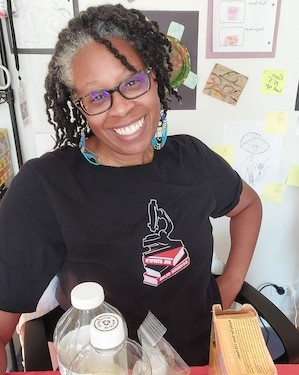
Stephanie E. Farmer
Farmer is the founder and executive director of Triple F Empowerment, Inc (TFE). She uses her Biochemistry degree and 18 years of experience in the non-profit sector to steer TFE. She has created a fun and engaging STEAM enrichment curriculum that helps youth get excited about science. She believes one can be a scientist and an artist, and has been helping youth cultivate their gifts in both areas since 2007.
What’s your inspiration for serving in your current role?
In 2007, I took a position as director of an after-school program in Harlem. During homework help, one of the students shared with me that they only had science once a week at school. I immediately started implementing hands-on science activities at that program. In 2012, I was encouraged by a friend to start my own program. As a scientist who loves the arts, I felt called to start a STEAM program.
Ten years later, I am inspired daily by the looks of wonder on the faces of the children that participate in Ms. Steph's Science Club. It is a privilege to see their faces light up when they figure out the mechanics of a machine or gain a deeper understanding of a chemical reaction. I am even more inspired by witnessing those same little ones teach and inspire their adult family members by enthusiastically sharing what they learned at Science Club.
How does your organization positively impact Harlem, Morningside Heights, and New York City?
We inspire young people to pursue education and careers in the STEAM fields. We provide engaging STEAM immersion experiences at our Saturday & Summer Science Clubs. We also conduct hands-on science workshops at early childhood centers and after-school programs in Harlem.
What’s your superpower?
I am an encourager. I help others cultivate their own superpowers.
What’s a tip you have for other women in nonprofit leadership roles?
I encourage all women in leadership roles to learn to set boundaries, rest when it is time, and remember to work smarter, NOT harder. Additionally, I implore you to share what you learn. Make it a point to train and raise up others every step of the way.
What’s your favorite place in New York City?
I love walking in Morningside Park.
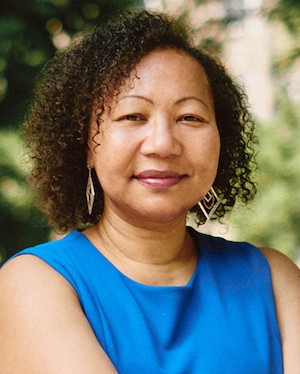
Liz Player
Clarinetist Liz Player founded The Harlem Chamber Players in 2008 with violist Charles Dalton, whom she met while performing at a Gala Concert for the New York Housing Symphony Orchestra. Inspired by Janet Wolfe, long-time patron of musicians of color and the founder and executive director of the NYC Housing Symphony Orchestra, Player dedicated herself to continuing the legacy of Janet Wolfe in creating opportunities for musicians of color, particularly Black and Brown classically trained musicians.
What’s your inspiration for serving in your current role?
I always loved chamber music, the way the music takes me away from my thoughts and worries, the way it heals and changes my mind. I want to share this gift with as many people as possible.
How does your organization positively impact Harlem, Morningside Heights, and New York City?
We try to bring some of the most beautiful chamber music repertoire uptown to our own neighborhoods in Harlem and Morningside Heights. We present our multi-ethnic ensemble of professional musicians, portraying the world as we would like it to be, with musicians of all backgrounds — Black, White, Latiné, Asian, LGBTQIA, differently abled people, and artists of all kinds of other backgrounds — working together to share this beautiful music with our neighbors. While our artistic vehicle is live classical music, our aim is more about connecting people of all types, in a place that helps us recognize that we are all just part of the same human race. We are all going through something, and we can take time out to "see" each other, bathe in the healing power of love and live music with live artists, and be magically transformed enough to be able to keep on going for the moment, or day, or for weeks, or months, or years.
What’s your superpower?
Love is my superpower, and it is also what hurts me the most. I truly love what I do. I love seeing people smile, laugh, and enjoy themselves. It is important to me that we maintain a spirit of teamwork and respect, if not love, among our roster of musicians, on our board, and on our staff.
What’s a tip you have for other women in nonprofit leadership roles?
Be confident and be yourself in every way that you are and want to be. Do not let anyone change who you are. Yes, you will deal with sexism and whatever other -isms pertaining to who you are and in many different forms, but be strong and know this has nothing to do with how competent or deserving you are.
What’s your favorite place in New York City?
I love Harlem! I love the beautiful bright murals I see everywhere, Jazzmobile at Grant's Tomb, all the shops along 125th Street, walking by the famous Apollo Theater, seeing Classical Theatre of Harlem's free plays in July at Marcus Garvey Park. I love all the restaurants, food, and culture. I could go on and on. I even love my apartment on the 5th floor and hearing the traffic noises outside. I love the beautiful Black and brown faces I see everywhere.
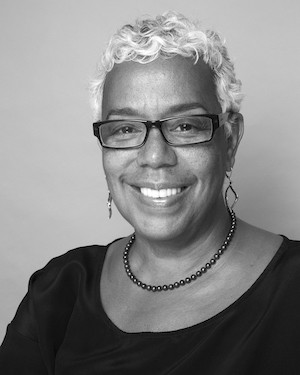
Janet Rodriguez
Janet Rodriguez, founder and CEO of SoHarlem Inc., has more than 20 years of experience in policy and grantmaking positions in public, private, and corporate philanthropy. She established SoHarlem in 2011 to ensure creative and local people participate in the economic development in the Manhattanville Factory District. SoHarlem supports racial equity and employment in Harlem by incubating creative enterprises.
What’s your inspiration for serving in your current role?
The ability to use all my experiences and skills to create equity in the arts and in my community.
How does your organization positively impact Harlem, Morningside Heights, and New York City?
SoHarlem’s mission is to create equitable opportunities as a placed-based Cultural Industries Incubator in Harlem dedicated to creativity and economic development as a way to address racial inequities and ensure a vibrant future for artists and our local community. Through ongoing, evolving partnerships with individuals in the creative community, along with public and private entities, we provide a wide range of services to our fellow New Yorkers helping them achieve economic self-sufficiency. We have demonstrated that social cohesion is critical to addressing the needs of our community, bringing people together to create and learn at the intersection of the arts with economic development.
What’s your superpower?
Figuring out creative alternatives on how best to proceed, when faced with any given scenario, and deep satisfaction in working hard with friends to achieve a goal.
What’s a tip you have for other women in nonprofit leadership roles?
Play to people’s strengths, rid yourself of male practices that have dominated the field that don’t work, and have fun.
What’s your favorite place in New York City?
Central Park.
Columbia Community Service grants are funded by donations from faculty, staff, and retirees at Columbia, Barnard, and Teachers College. Give today to help support this year's grants to organizations that provide vital social services, fill educational gaps, support the arts, and combat hunger in Harlem and Morningside Heights.
